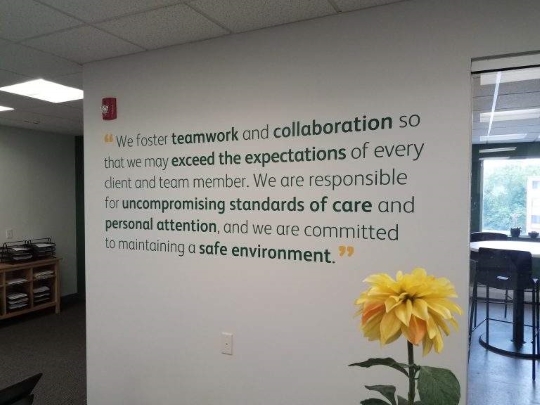Why More Building Brands are Using Core Values in 2023 to Build their Culture

Introduction
Culture is at the heart of every successful company. It's what inspires employees to come to work every day and do their best work, and it's what helps customers connect with your brand in a meaningful way. But how do you build a strong culture? In this blog post, I'm going to explore why more companies are using core values in 2023 to build their culture.
Why you should use Core Values in 2023 to build your culture
Core values are a great way to build your culture. They help you attract and retain the right people, build a strong team and. brand, and set you apart from other companies.
In an increasingly competitive marketplace where everyone is looking for the same types of employees with similar skill sets, having clear core values will make it easier for potential employees who want to work at your company to know what they're getting into before they even apply or interview.
Core values can also help guide decision-making within your organization so that everyone knows what's important when making decisions about things like hiring new employees or creating products/services. This helps ensure that everyone is working towards one goal rather than multiple goals simultaneously which makes it easier for teams across departments (marketing vs finance vs operations) to work together seamlessly without stepping on each other's toes while still being able to achieve separate goals within their spheres of influence.
Core values can also be used to help with hiring new employees. If someone is interviewing for a position at your company, ask them what they think your company's core values are and how they align with those values. This will let you know if this person is truly compatible with the culture of your company or not.
How to create a culture using core values
To create a culture that reflects your brand's core values, start by creating a list of what those values are. It may be not easy to define them at first, but once you do, your team will have something concrete to work with when they make decisions and hire new employees.
Next, use your core values as guidelines when making decisions related to the business or hiring process. For example: If one of your company's top priorities is transparency and honesty (and let's say this is reflected in one of its core values), then it might not be appropriate for someone on staff who does not have these traits--or even worse--who has been dishonest about their experience or qualifications for the job at hand.
Similarly, if diversity is important within an organization (another example from above), then hiring managers should look for candidates who possess diverse backgrounds rather than simply focusing on whether they are qualified technically or otherwise because this could lead down wrong paths later down the line if employees don't feel comfortable being themselves at work due to lack of diversity among co-workers' backgrounds/experiences/etcetera."
If your company's values are clear, then hiring managers can focus on finding candidates who align with those values rather than simply looking for the best technical fit. This will not only help you find better employees but it can also help reduce turnover rates because people feel more comfortable being themselves at work."
Conclusion
We hope this blog has been helpful and inspiring. We appreciate your feedback, suggestions, and comments.
For more information, please contact us.
March 3, 2023
|
View: 457
|
Categories: News, Business News, Blogging, Deals
| Tags: news, Motivation, Branding, inspiration, Business Decor
|
By: Wall Words Mgmt. Team












